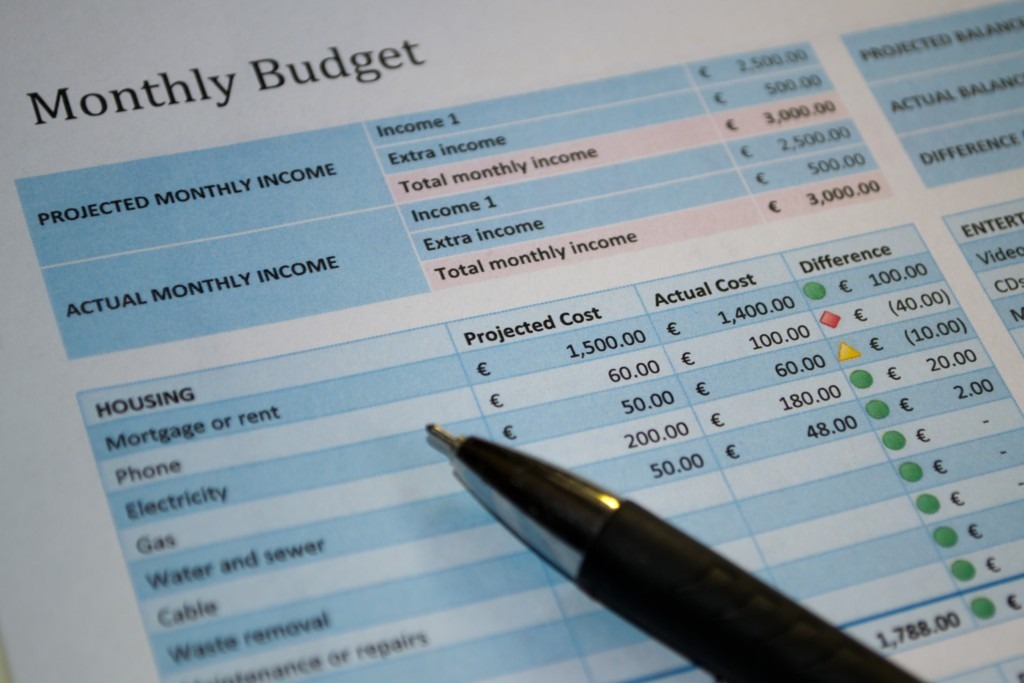
If you had to estimate how much time you spend thinking each day about money, could you do it?
The sheer thought of tracking your money thoughts could be daunting enough, but let’s face it just about everyone thinks about money at some point every day. If you start to pay attention and notice that emotional feelings about money are taking up more and more of your thinking time, then it may be an indication that a part of your brain is on hyper-vigilance over the possible loss of money.
Yes, it’s true. Your brain has a money loss barometer built in! Here’s how it works.
Your amygdala (ah-MIG-dah-lah) is actually two almond size tissues that act as a processing center for emotions, emotional memories, and behaviors. Think of this center as a hub for directing your emotions and being vigilant for possible incoming stimuli of a threatening nature.
Even though tigers are off your radar, your amygdala could now be on the lookout for potentially dangerous money loss conditions.
Imagine that a monthly bill arrives with a higher payment amount than you expected. At first, you may be upset or angry. But what if you were barely able to pay last month’s amount, you don’t know where the extra money is coming from and this is going to be your new monthly payment? As part of your amygdala is sorting this information, it’s also searching your emotional money memories looking for similar feelings to associate with it.
Let’s just say it finds some memories of someone you know having to file for bankruptcy and you vowed that it would never happen to you. Now when any of your bills arrive, your money losing barometer lights up with feelings of anxiety because it’s linked old feelings to things it recognizes as similar.
Now, there are lots of circumstances and memories that can set off your feelings about money from disappointment, frustration, anger to fear. But when you sense a real threat of losing the money you have or losing your options for having more money, your brain’s barometer is escalating to that hyper-vigilance level of anxiety.
By paying attention to your money issues you can short-circuit any anxiety before it can keep you from making good money decisions, keep you from navigating through a though a rough economy and most certainly keep you from having the money success you envision for yourself.
Just like a weather barometer tells you it’s going to rain and you need an umbrella, your amygdala barometer is telling you your money anxiety is rising. Once you’ve received that barometer message, you have the option to take control and change how you do want to feel about money or let your old feelings continue to rain on your parade.
How do you handle your money loss thoughts?
You Can Find Me At -

When I catch myself worrying about a gap between money in and money out, I sit down with pen and paper so I can look at the picture realistically. (Just ruminating about it often makes the problem seem bigger than it actually has to be.) Then I look at all the budget items that are not fixed and figure out which ones I can trim, by even four or five dollars. It also may be a time to look through closets and drawers for items that I could possibly sell in a yard sale.
Matthew and I try to head off anxiety about money with regular “strategic planning” sessions. At least once a month, we’ll go over our budget, discuss how money is coming, going, and growing, and make whatever changes we want or need. Sometimes our strategic planning meetings are quick, so we try to make up for it the next month with a more in-depth look at our finances.
Smart move, Irene. Staying on top of monthly finances makes for good money choices. And, making a joint effort reduces a lot of tensions many couples face when only one partner is handling the finances.
I wonder how the brain parses anxiety levels when there are multiple significant threats producing anxiety simultaneously.
Good question Nancy. I would suspect the brain is looking for similar patterns of recognition. Both recognized and unrecognized simultaneous events I assume would escalate anxiety to a state of overwhelm and fear.
This is very interesting….Then how do people who consistently gamble their money away, deal with all of the anxiety? Is it possible that they lack activity in that special part of the brain? Do they have a chemical imbalance? Bet.
Reply –
There is research that compared two patients who had genetic amygdala damage to a control group. When given choices of gambling with small amounts of money, the two patients took riskier chances and often were not aversive to any money loss. Research into economic loss aversion has been studied from some time, but now it seems researchers are able to tie the behavior to this part of the brain.